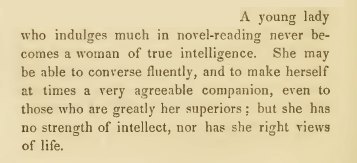TidiousTed
Practically Family
- Messages
- 532
- Location
- Oslo, Norway


That's a pretty good argument right there for the preservation of as much as possible. It's a very elightened attitude to say "I like to think I'd have been different, but I probably wouldn't have," and I laud you for saying as much. But how to come by that attitude?...
 John Lofgren Monkey Boots Shinki Horsebuttt - $1,136 The classic monkey boot silhouette in an incredibly rich Shinki russet horse leather.
John Lofgren Monkey Boots Shinki Horsebuttt - $1,136 The classic monkey boot silhouette in an incredibly rich Shinki russet horse leather.  Grant Stone Diesel Boot Dark Olive Chromexcel - $395 Goodyear welted, Horween Chromexcel, classic good looks.
Grant Stone Diesel Boot Dark Olive Chromexcel - $395 Goodyear welted, Horween Chromexcel, classic good looks.  Schott 568 Vandals Jacket - $1,250 The classic Perfecto motorcycle jacket, in a very special limited-edition Schott double rider style.
Schott 568 Vandals Jacket - $1,250 The classic Perfecto motorcycle jacket, in a very special limited-edition Schott double rider style. Most of my stuff is and remains analog -- I have over 8000 hours of radio material, mostly on cassettes and reels, along with a closet full of radio transcriptions and another closet full of 78rpm records. I digitize some of it for convenience -- I run iTunes on my desktop computer and feed it to a small AM radio transmitter, and that's how I do much of my daily listening. But I've never disposed of the originals, and of those 8000 hours of tape, accumulated over forty years time, I've had exactly two cassettes go bad. Pretty good ratio, I think.
Digitally, I've lost two hard drives in the past five years, each containing several hundred hours of material. If I'd disposed of the original material, I'd be up the creek. But I didn't, so I'm not. I'm convinced digitization is fine as a convenience medium, but I don't consider it archival at all. Dispose of your originals at your own risk.
My grandmother on my father’s side collected newspapers with important front pages, so I got papers from when Henrik Ibsen died, the first world war started, when it ended and so on. But the problem with these papers are that they have become very brittle over the years and almost fall apart when you try to page through them.
One knock I have on digital archives - and for the record, there are lossless files of high quality - is this: I work in the music industry at the largest company in the world. We had archives placed on DVD of album artwork, photos, etc. from the late 90's/early Y2k days. Some of them are no longer readable - even though they're stored in controlled rooms vertically, in cases, etc. It's not the computers or hardware - something happened to those earlier disks. New archival DVD/CD disks are meant to last over 100 years. But - the fact remains, we don't stay static in our technologies. How many here have turntables, 8-tracks, cassettes, floppy disks, etc? (for the record, no pun intended, I do have turntables and tube amps) and we likely won't have CD/DVD's in 10, 15 years. It's a tough one. I think about it all the time. You look at people that have family photos, awards, etc. on paper, and a flood, fire, earthquake destroys them. At least my digital stuff is backed up elsewhere so I won't lose that, barring nuclear war or Armageddon.

...Libraries exist in a swamp of murky rules. They include copyright law and format laws. Unfortunately, it is incredibly complex to get books digitalized. Lots of stuff is totally destroyed before (if ever) permission can be gotten. Which I think is incredibly sad.
Not that I shouldn't be able to figure this out on my own, but has anyone had experience in converting a book to pdf, and then loading it onto their Nook? Yes, I am anal obsessive enough to scan (my own) books.
Not that I shouldn't be able to figure this out on my own, but has anyone had experience in converting a book to pdf, and then loading it onto their Nook? Yes, I am anal obsessive enough to scan (my own) books.
If you want to scan your books into digital text (text used by word prosessors, in pdf documents and on web pages) you need to use a type of scanning called OCR scanning.
Caveat on that: by the time you get through editing and fixing all the typos caused by your typical O.C.R. scan, you may wonder whether it wouldn't have been worth it just to type the whole thing in manually.
I often have to read people's (approx. 120 page) screenplays on screen and I don't like it at all.
I'm a print and paper kinda guy. The first thing I do with a book is smell it. I can't smell a screen.